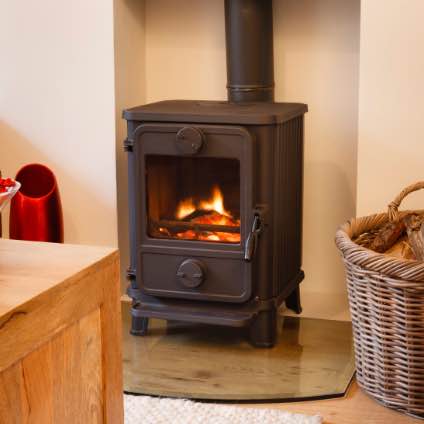Fall Fire Prevention: Key Tips for Home, Auto, and Business Safety This Season

October is National Fire Prevention Month: a timely reminder that fire safety starts long before an emergency. Whether you’re at home, on the road, or running a business, taking a few proactive steps can make a big difference in protecting what matters most.
At Safety Insurance, we believe preparation is the foundation of protection. Routine maintenance, awareness, and the right equipment can help prevent fires before they start and minimize damage if they do. Below are key fire safety tips to keep your home, vehicle, and workplace safe year-round, including important seasonal advice for fall cleanup.
Home Fire Safety
Your home should be a place of comfort and security. Regularly reviewing your fire safety plan helps ensure that it stays that way.
- Check smoke alarms and extinguishers: Test alarms monthly and replace batteries twice a year. Make sure you have a fire extinguisher on every level of your home.
- Practice an escape plan: Every household member should know two ways out of every room and where to meet outside.
- Keep heat sources clear: Maintain at least three feet of space around fireplaces, space heaters, and candles.
- Use appliances safely: Don’t overload outlets, and unplug small appliances when not in use.
- Clear leaves and debris: Dry leaves, pine needles, and yard debris can ignite easily. Keep gutters, roofs, and yards free from accumulation to reduce fire risk near your home.
- Dispose of yard waste properly safely: Avoid burning leaves or debris. Instead, compost or dispose of them through local waste services. Burning yard waste can quickly get out of control, especially during dry conditions. Be sure to follow local regulations from your city or town.
- Clear leaves and debris: Dry leaves, pine needles, and yard debris can ignite easily. Keep gutters, roofs, and yards free from accumulation to reduce fire risk near your home.
- Stay kitchen-aware: Most home fires start in the kitchen—never leave cooking food unattended.
Auto Fire Safety
Your car is another area where small issues can quickly turn into major hazards. A few precautions can keep you safe on the road.
- Don’t ignore warning signs: Burning smells, smoke, or dashboard warning lights can signal trouble—have your vehicle inspected right away.
- Keep your engine clean and leak-free: Regular maintenance helps prevent flammable fluids from igniting.
- Avoid smoking or storing flammables: Keep matches, lighters, and aerosol cans out of your car, especially in hot weather.
- Carry a car fire extinguisher: A compact, automotive-rated extinguisher is an easy way to stop a small fire before it spreads.
- Drive cautiously on slippery leaves: Wet leaves can be as slick as ice, reducing tire traction and increasing skid risk. Slow down on leaf-covered roads, increase following distance, avoid sudden steering or braking, and steer gently in the direction of any skid to regain control. Also, avoid driving over large piles of leaves where hazards or children may be hidden.
Business Fire Safety
Workplaces face unique risks, and preparedness is key to keeping employees and property safe.
- Train employees on fire response: Make sure everyone knows evacuation routes and how to use fire extinguishers.
- Maintain alarms and extinguishers: Inspect regularly and ensure all safety systems are operational.
- Store flammable materials safely: Follow OSHA guidelines for handling and storage.
- Conduct regular fire drills and inspections: Routine practice builds confidence and keeps your safety procedures effective.
Protecting What Matters Most
Fire safety isn’t just about prevention, it’s about readiness. By taking small, consistent steps, you can reduce your risks and protect your family, employees, and property.
At Safety Insurance, we’re here to help you prepare for the unexpected so you can stay protected throughout every season.





